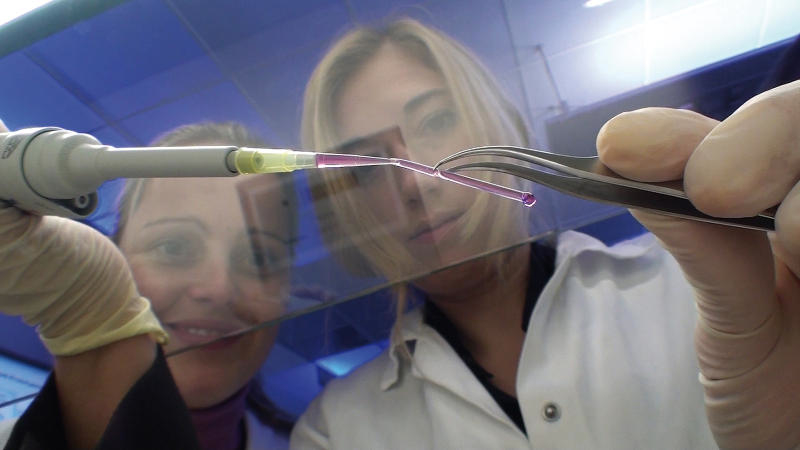3D Printing Process Creates Artificial Blood Cells
As part of their BioRap project, researchers at Fraunhofer are now developing artificial blood vessels using 3D printing. In the future, these biocompatible blood cells will be able to supply nutrients to artificial tissue and possibly even to complex organs. An article at ScienceDaily has the details.
 With the number of transplant patients outnumbering the supply of conventional organs, the science of tissue engineering offers life-saving potential. Scientists envision that one day even complex organs will be able to be created in a lab. However, because these artificial organs do not have an organic vascular system, they require an alternative blood supply. Up to now, creating the tiny and complex capillary vessels has proved daunting. The BioRap project overcomes this challenge by combining the "the 3-D printing technology established in rapid prototyping and multiphoton polymerization developed in polymer science."
With the number of transplant patients outnumbering the supply of conventional organs, the science of tissue engineering offers life-saving potential. Scientists envision that one day even complex organs will be able to be created in a lab. However, because these artificial organs do not have an organic vascular system, they require an alternative blood supply. Up to now, creating the tiny and complex capillary vessels has proved daunting. The BioRap project overcomes this challenge by combining the "the 3-D printing technology established in rapid prototyping and multiphoton polymerization developed in polymer science."
A 3D inkjet printer can generate 3-dimensional solids from a wide selection of materials, but the technology lacks the necessary precision, which is where the polymerization process comes in. Brief laser impulses stimulate the molecules, creating an elastic solid. The ink is made up of hybrid materials that contain a mixture of synthetic polymers and biomolecules. The entire process aims to replicate the natural model to ensure proper interaction with natural tissue and to support healthy nutrient flow.
Günter Tovar, project manager at the Fraunhofer Institute for Interfacial Engineering and Biotechnology, explains: "we are establishing a basis for applying rapid prototyping to elastic and organic biomaterials. The vascular systems illustrate very dramatically what opportunities this technology has to offer, but that's definitely not the only thing possible."
At some point, entire organs could be constructed using the 3D printing process, but scientists acknowledge that an implantable solution will not be ready anytime soon. The research findings will be exhibited at the Biotechnica Fair, taking place in Hannover, Germany, October 11-13.










